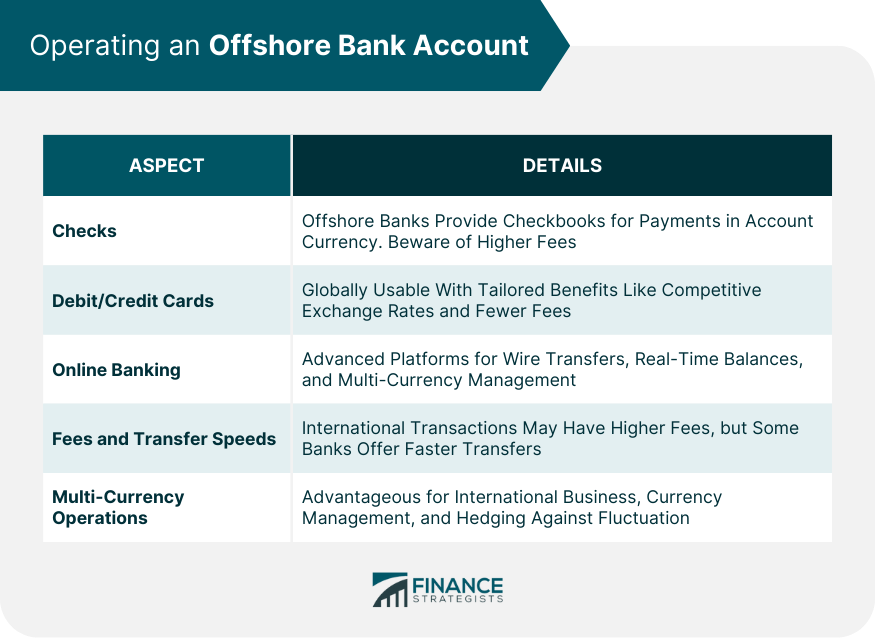Comprehending the Lawful Implications of Offshore Business Formation

Legal Structure for Offshore Firms
When establishing an offshore company, understanding the lawful framework governing its development and procedure is important for compliance and danger management. Offshore business run under certain laws and policies that vary from those of onshore entities. The lawful framework for offshore firms normally includes arrangements for business enrollment, shareholder demands, supervisor obligations, and tax obligation commitments.
Business registration includes sending the needed paperwork to the proper regulatory authorities in the picked territory. This procedure commonly calls for detailed information regarding the firm's structure, investors, and intended tasks. Furthermore, offshore firms have to stick to details shareholder needs, such as preserving a register of shareholders and keeping this details approximately date.
Supervisors of overseas firms have fiduciary tasks to act in the best rate of interests of the company and its shareholders. By adhering to the lawful framework governing offshore firms, services can run with confidence while minimizing lawful dangers.


Tax Implications and Regulations
When thinking about the establishment and operation of an overseas firm,Comprehending the tax implications and regulations is vital. Taxes play a crucial function in the decision-making process of whether to establish an offshore entity. Offshore business are commonly based on favorable tax obligation routines, offering reduced or no tax obligation prices on foreign-earned revenue. It is important to navigate these tax obligation advantages very carefully to make certain compliance with both the laws of the offshore territory and the home country.
Tax obligation laws for offshore business differ significantly throughout territories, and it is vital to seek skilled recommendations to recognize the certain requirements and responsibilities. Failing to follow tax obligation laws can result in severe repercussions, consisting of substantial penalties, reputational damage, and even lawsuit. Additionally, overseas territories might have reporting obligations to disclose financial details to relevant authorities. Comprehensive understanding of tax obligation laws and regulations, as well as appropriate tax obligation planning, are vital to make certain the certified and effective operation of an overseas business.
Conformity Demands and Coverage
Ensuring conformity with regulatory needs and preserving accurate reporting are vital aspects of handling an offshore firm efficiently and transparently. Offshore business have to stick to the legislations and policies of both the jurisdiction in which they are integrated and any kind of other pertinent jurisdictions where they carry out business.
In addition to regulative conformity, offshore firms are usually subject to reporting needs to make certain transparency and prevent prohibited tasks such as cash laundering or tax evasion. Coverage obligations may include divulging details concerning the firm's possession structure, monetary activities, and beneficiaries. This details might require to be shown regulative bodies, tax obligation authorities, or various other governmental firms, depending upon the territory.
Keeping comprehensive and accurate documents is vital for demonstrating compliance and replying to any questions or audits effectively. Offshore business need to execute durable reporting devices and inner controls to guarantee that they meet all lawful demands and operate with honesty.
Possession Defense and Personal Privacy Rules
In the realm of offshore company formation, a critical consideration is the interaction between property defense methods and personal privacy laws. Offshore jurisdictions frequently supply improved asset protection devices that protect assets from prospective risks such as lawsuits, creditors, or political instability in the home country. By structuring possessions within an offshore business, people can secure their wealth and diversify their holdings throughout various legal structures. Furthermore, personal privacy regulations in offshore territories add to keeping privacy and privacy for firm owners. These regulations limit the disclosure of delicate information, making it challenging for exterior events to gain access to information concerning the business's operations or ownership framework. This level of personal privacy can be helpful for people looking for to secure their assets from public examination or rivals. However, it is vital for people to browse these laws morally and transparently, making sure compliance with both offshore laws and the lawful requirements of their home nation. Eventually, comprehending the complex partnership in between property protection techniques and privacy legislations is critical when thinking about overseas business formation.
Obstacles and dangers to Think about
When venturing into offshore business development, prudent consideration of prospective threats and challenges is necessary for informed decision-making and strategic preparation. Furthermore, political instability or adjustments in overseas territories can posture a threat to the continuity of procedures and the security of assets held by best site the overseas company.
Obstacles may also occur worrying the complexity of offshore business structures and the requirement for expert legal and economic advice to browse the detailed regulatory structures of various territories (offshore company formation). Maintaining compliance with varying worldwide laws and policies, in addition to potential language barriers and social differences, can additionally complicate the overseas company formation process. It is essential to be familiar with these dangers and obstacles prior to waging overseas firm development to minimize possible mistakes and make certain a smooth and lawfully audio establishment
Verdict
In conclusion, offshore business click here for info formation entails navigating intricate legal structures, tax obligation effects, conformity requirements, and privacy laws. Recognizing these aspects is important for minimizing dangers and challenges connected with offshore service operations. It is very important for organizations and individuals taking into consideration offshore firm formation to look for professional support to guarantee conformity with guidelines and to protect their properties efficiently.
The lawful structure for offshore firms usually includes arrangements for firm registration, investor requirements, supervisor duties, and tax responsibilities.
Directors of offshore firms have fiduciary responsibilities to act in the ideal interests of the business and its shareholders. By adhering to read more the lawful structure regulating overseas companies, companies can run with confidence while decreasing legal threats.
Additionally, political instability or modifications in overseas territories can pose a danger to the connection of procedures and the security of assets held by the offshore company. - offshore company formation
In verdict, offshore business development entails navigating complicated lawful structures, tax obligation implications, compliance demands, and personal privacy laws.
Comments on “Offshore Company Formation: Professional Tips and Insights”